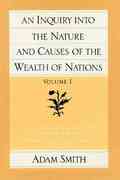Question
1/ Suppose you have the following two investment choices. Which is better for you? multiple choices a. Earn 15% per year for 10 years b.
1/ Suppose you have the following two investment choices. Which is better for you? multiple choices
a. Earn 15% per year for 10 years
b. Earn 10% per year for 5 years, then 20% per year for 5 more
c. Earn 20% per year for 5 years, then 10% per year for 5 more
2/ Suppose that you win a $100m lottery.
After you win, you learn that the lottery doesn't actually pay you $100m all at once, but instead it gives you 20 payments of $5m per year starting today (FYI - this is how most lotteries work, so you don't win as much as you think).
If your discount rate is 5%, what is the PV of the annual payments? Give it to the nearest million, so that 87.2 would be 87.
3/ In the prior question about the lottery, suppose they offer you a lump sum of $60m today. Which would an economist say you should take and why? multiple choices
a. The lump sum because it has a lower FV
b. The annual payments because they have a higher PV
c. The annual payments because they have a lower PV
d. The lump sum because it has a higher PV
4/ Suppose that we estimate that climate change will cause massive damages in 100 years. If the discount rate is 4%, how much should we be willing to spend today to prevent each $1 million in damage? multiple choices
a. $104,200
b. $19,800
c. $27,400
d. $61,100
5/ How would your answer to the prior question (#4) change if the discount rate was 2% instead? multiple choices
a. It would be 7 times higher
b. It would be twice as high
c. It would be 1/2 as large
d. It would be 17 times higher
e. It would be 1/7 as large
Step by Step Solution
There are 3 Steps involved in it
Step: 1

Get Instant Access to Expert-Tailored Solutions
See step-by-step solutions with expert insights and AI powered tools for academic success
Step: 2

Step: 3

Ace Your Homework with AI
Get the answers you need in no time with our AI-driven, step-by-step assistance
Get Started


